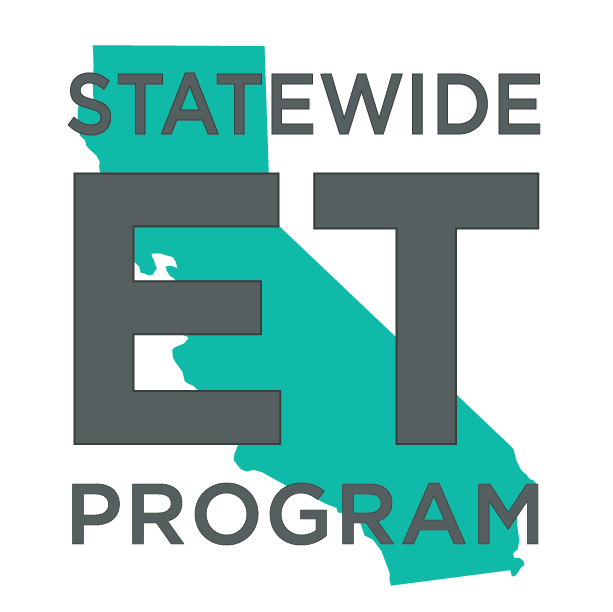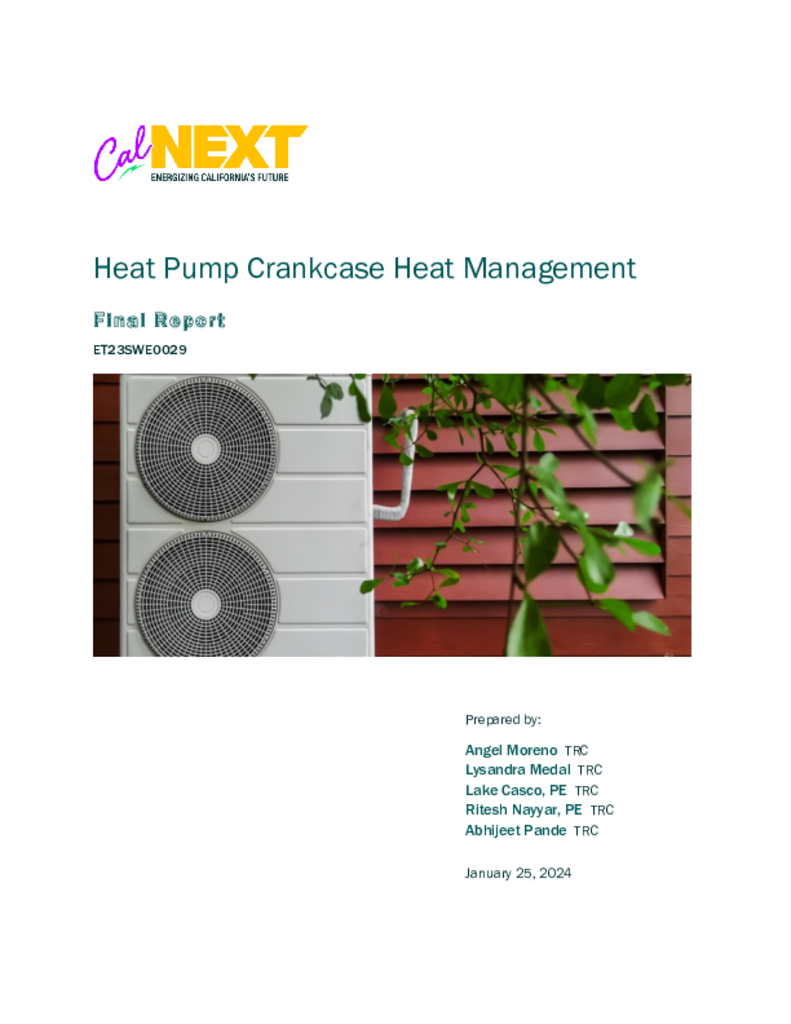ET23SWE0029 - Heat Pump Crankcase Heat Management
Heat Pump space conditioning systems (HP) are a key tool in meeting the state’s GHG goals, however, recent data from field M&V studies has shown significant energy penalty from the incorrect operation of crankcase heaters (CCH), defrost controls and standby power usage – up to 50% of the annual energy use of the HP. This spans both residential Air Source Heat Pump (ASHP) systems as well as those installed in commercial applications such as schools. Crankcase heating is installed in ASHP systems to ensure that there is no liquid refrigerant in the compressor, which can cause damage to the compressor. Defrost controls are installed in ASHP systems to thaw outdoor coils that may freeze when outdoor temperatures are low enough to cause frost build-up on the outdoor coils. However, when the ASHP lacks proper controls, these crankcase heat and defrost controls are used too often or too long (or both) than necessary. Some ASHP systems also seem to have a constant base-load power usage (standby power) when they are not actively heating/cooling. These problems result in significant energy penalties.
The California Electronic Technical Reference Manual (eTRM) is the official repository for deemed measures used by Program Administrators (PA) and Program Implementers under the purview of the CPUC. The eTRM has several individual measure packages (formerly workpapers) that address deemed savings for heat pump related technologies. These measure packages currently do not adequately address these energy penalties from incorrect operation of crankcase heaters, defrost controls or phantom base-loads.
This project will review existing datasets, collaborate with other researchers and manufacturers to identify the scope of these issues (whether isolated to certain models or endemic to all ASHP), identify potential fixes to the problem (either software/hardware) and impact on energy and GHG savings from the fixes.
The project team will collaborate with the CA IOU Codes and Standards team that has proposed new code requirements to address this CCH issue for new construction projects. Significant potential is untapped for existing building retrofits, which are the primary focus on this work. The project team will also collaborate with CalTF to document current assumptions in measure packages, existing CPUC dispositions and IOU efforts in this area as well as seek input on the project team’s proposed recommendations for measure package updates.
The end result will be developing a recommendation for updates to existing heat pump measure packages or a new measure for heat pump QA/QM related to CCH, defrost controls and standby power usage.
The need for this project arises from field studies that indicate crankcase heaters (CCHs) and other auxiliary loads may use almost half the total energy of heat pumps (HPs) installed in California. There is a particular concern that sometimes CCHs operate when unnecessary. The objective of this study is to evaluate potential solutions to the CCH energy consumption issue and quantify potential savings from identified solutions. The project team assigned a priority level of high for recommendations that may immediately provide energy and emissions reduction or quantify potential future savings; and low priority for recommendations that are dependent on the findings of additional research, or research that could support future measure calibration.

